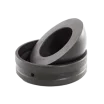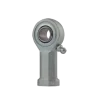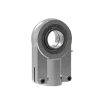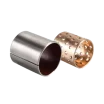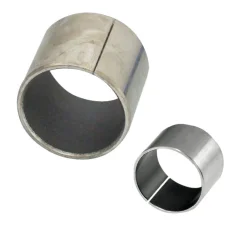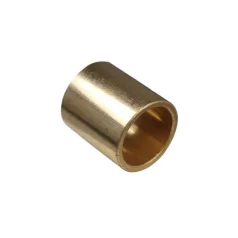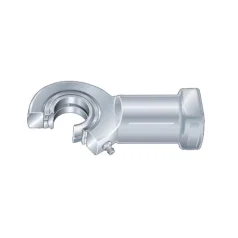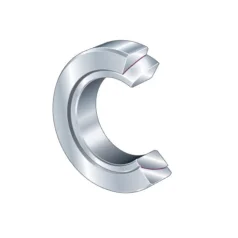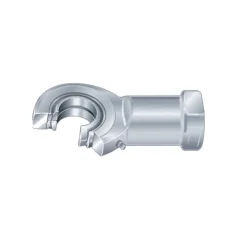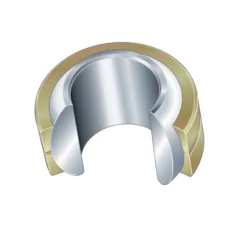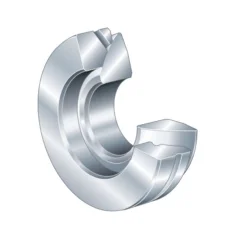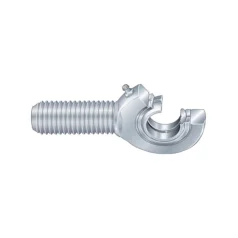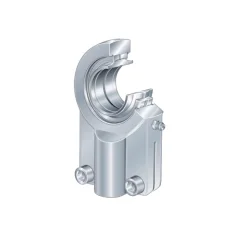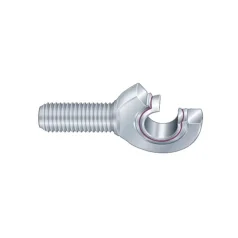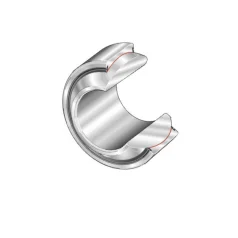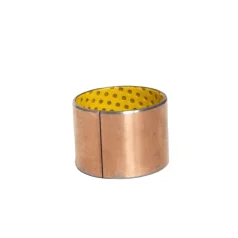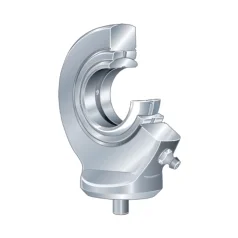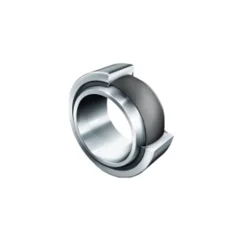Cojinetes lisos
(2041)Solución fiable para un funcionamiento duradero y silencioso
Los rodamientos lisos representan uno de los pilares fundamentales de la industria moderna y la ingeniería mecánica. Gracias a su sencillez, robustez y amplia gama de diseños, proporcionan un rendimiento fiable incluso en condiciones de funcionamiento exigentes en las que se presentan cargas elevadas, movimientos repetitivos o un espacio de instalación limitado. Se utilizan en la industria del automóvil, la hidráulica, la maquinaria agrícola y de construcción, así como en muchas otras aplicaciones que requieren precisión y una larga vida útil.
Importancia y aplicación de los cojinetes lisos.
Importancia y aplicación de los cojinetes de fricción
Los cojinetes lisos sirven como elemento de conexión entre dos superficies, permitiendo un deslizamiento suave y reduciendo la fricción. Al no contener elementos rodantes como bolas o rodillos, son más fáciles de instalar y a menudo más adecuados para aplicaciones específicas en las que no son aplicables los rodamientos. También se caracterizan por su funcionamiento silencioso y su resistencia a las vibraciones, lo que los hace indispensables en muchos sectores industriales.
Tipos y propiedades de los cojinetes lisos
Dentro de la categoría de los cojinetes lisos, existen varios diseños para satisfacer requisitos específicos:
Los cojinetes lisos se caracterizan por su funcionamiento silencioso y su resistencia a las vibraciones.
- Rótulas – permiten la transmisión de cargas radiales y axiales y se adaptan a desalineaciones angulares.
- Rótulas – adecuadas para aplicaciones dinámicas y a menudo se utilizan junto con cilindros hidráulicos.
- Rótulas hidráulicas – diseñadas para altas presiones y rendimiento a largo plazo en sistemas hidráulicos.
- Casquillos – una solución sencilla y económica para diversas aplicaciones industriales.
Dependiendo de las propiedades técnicas, se pueden seleccionar diferentes materiales y dimensiones:
Materiales.
- Materiales: iglidur, acero + PTFE, acero + plástico, bronce sinterizado. Cada material ofrece ventajas específicas como alta resistencia al desgaste, autolubricación o capacidad de carga.
- Espesor: la elección precisa del espesor (por ejemplo, 1,5 mm, 2 mm, 2,5 mm) permite una adaptación óptima a cada aplicación.
- Disponibilidad en stock: la amplia gama en stock garantiza una entrega rápida y una producción ininterrumpida.
Ventajas de los cojinetes lisos de calidad
La elección de cojinetes lisos de alta calidad aporta numerosas ventajas:
- larga vida útil incluso bajo cargas elevadas,
- funcionamiento silencioso sin vibraciones innecesarias,
- fácil instalación y mantenimiento,
- amplio campo de aplicación – desde la industria del automóvil hasta la construcción,
- eficiencia de costes gracias a la menor necesidad de lubricación adicional.
Cómo elegir el cojinete de fricción adecuado
A la hora de seleccionar el cojinete de fricción adecuado, deben tenerse en cuenta varios factores:
- Capacidad de carga – determina si se requieren diseños más robustos, como las rótulas.
- Entorno de funcionamiento – para condiciones húmedas o polvorientas, son más adecuados los materiales con mayor resistencia.
- Dimensiones – el grosor y el diámetro interior deben coincidir con el conjunto existente.
- Material – a elegir entre acero, diseños de bronce o compuestos autolubricantes.
.
Fabricantes de rodamientos
En nuestra selección encontrará los mejores fabricantes que garantizan calidad y fiabilidad:
Asahi, Askubal, Durbal, FAG, Fluro, GLT, Hirschmann, Igus, IKO, INA, ISB, KBC.
La cooperación con marcas establecidas nos permite ofrecer a los clientes una amplia selección, rápida disponibilidad y un apoyo fiable en el proceso de selección.
La cooperación con marcas consolidadas nos permite ofrecer a los clientes una amplia selección, una rápida disponibilidad y un apoyo fiable en el proceso de selección.
Consultoría y soporte
En M&M Intercom, creemos que la elección del cojinete de fricción adecuado es crucial para un funcionamiento eficaz y sin problemas del sistema. ¡Nuestro equipo de expertos le ofrece soporte técnico, asesoramiento en la selección de materiales y dimensiones, y asistencia para encontrar la solución óptima para su aplicación industrial.
Por favor, contacte con nosotros!
Correo electrónico: [email protected]
Teléfono: +386 1 29 27 960
Preguntas frecuentes (FAQ):
- ¿Qué son los cojinetes lisos? Los cojinetes lisos son componentes mecánicos que permiten el movimiento entre dos superficies con una fricción mínima y se utilizan en muchas industrias.
- ¿Dónde se utilizan los cojinetes lisos? Se aplican en la industria del automóvil, maquinaria de construcción y agrícola, hidráulica y diversos dispositivos en los que se requiere fiabilidad y un funcionamiento silencioso.
- ¿Qué tipos de rótulas existen?Los tipos incluyen rótulas, cabezas de rótula, rótulas hidráulicas y casquillos; cubriendo una amplia gama de requisitos técnicos.
- ¿De qué materiales están hechos los cojinetes de fricción? Los materiales más comunes incluyen iglidur, acero con revestimiento de PTFE, combinaciones de acero y plástico, y bronce sinterizado.
- ¿Por qué elegir cojinetes de fricción en lugar de rodamientos? Los cojinetes lisos son más asequibles, más silenciosos, más fáciles de instalar y muy duraderos bajo cargas más altas y velocidades más bajas.
- ¿Cómo elegir el cojinete liso adecuado?Considere las dimensiones (grosor, diámetro), la capacidad de carga, el método de montaje y las condiciones de funcionamiento (funcionamiento en seco o lubricado).
- ¿Cuáles son las ventajas del material iglidur en los cojinetes de fricción?El iglidur proporciona baja fricción, alta resistencia al desgaste y larga vida útil incluso en condiciones de funcionamiento exigentes.
- ¿Necesitan mantenimiento los cojinetes de fricción?La mayoría de los cojinetes de fricción modernos son autolubricantes y no requieren mantenimiento, lo que reduce los costes y aumenta la fiabilidad.
- ¿Qué marcas de cojinetes de fricción están disponibles en M&M Intercom? Ofrecemos productos de fabricantes de renombre como INA, FAG, Igus, IKO, Durbal, Fluro y muchos otros.
- ¿Proporcionan asistencia técnica para la selección de cojinetes de fricción?Sí. Nuestro equipo de expertos le asesora en la selección y le ayuda a encontrar la solución óptima para su aplicación.
Con años de presencia en el mercado, conocimientos y experiencia, encontramos la solución técnica más adecuada y rentable para su aplicación.
Juntas a medida con una precisión de hasta 0,1 mm para todas las industrias. Materiales de alta calidad, formas adaptables y ejecución rápida. Soluciones para condiciones extremas.
